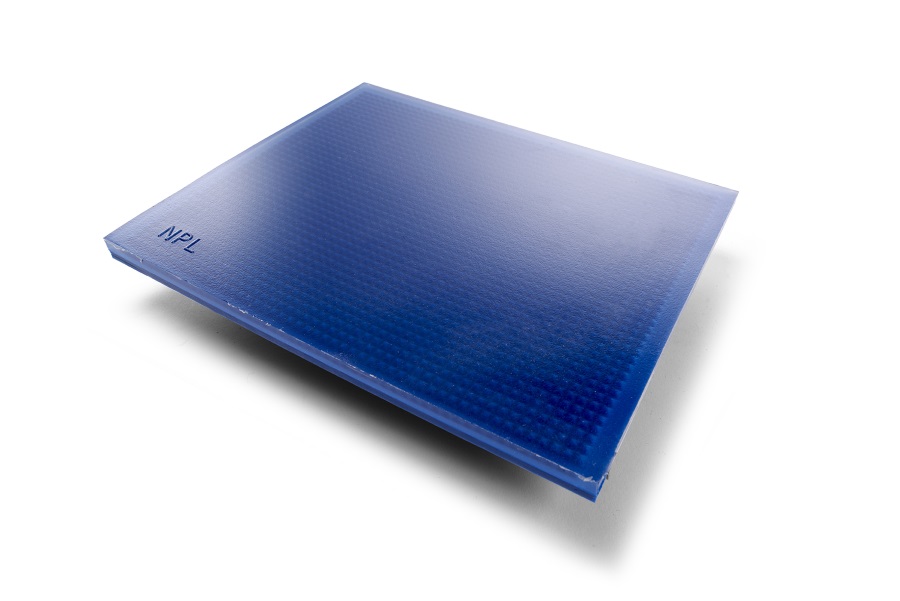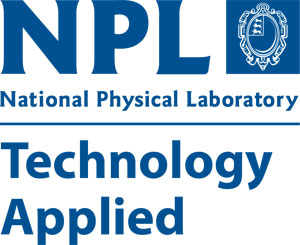Overview
- Absorbing targets for radiation force balances, to minimise the errors associated with the reflecting targets of most commercially available radiation force balances.
- Low ultrasonic echo (anechoic) material as a specialist coating for hydrophone mounts used for characterisation of medical ultrasonic equipment employing continuous-wave or long toneburst excitation.
Physical specification
- Based on polyurethane rubber material two layers: top layer – acoustic impedance matched to water backing layer – partially air-loaded to increase insertion loss
- Interface between the two types of material pyramidal in structure to scatter incident ultrasound
- Dimensions: 200 mm x 250 mm x 14 mm
- Coefficient of linear thermal expansion is 200 ppm/oC
- Density of 1010 + 20 kg / m3
- Specific gravity is 1.01
- The Longitudinal wave speed (1 MHz to 10 MHz) ≈1500 m/s.
- Acoustic Impedance is 1.5 MRayls.
- There is residence to Isopropyl Alcohol (IPA) and Tricholethylene.
- It can be affected by Ketones (MEK, Acetone) – Swell
- Dichloromethane – Swell and breakdown
- Avoid prolonged exposure to Ozone and UV
- The stability is very stable due to cross-linked nature of polymer
- Material can be precision cut in various geometries to meet exact end-user requirements, e.g., simple discs of 50 mm diameter
Acoustical specification
- High insertion loss > 30 dB/cm/MHz.
- High echo-reduction, > 42 dB at 1 MHz degrading to 33 dB at 14 MHz.
- The NPL absorber fully meets the requirements for radiation force balance targets, covering the frequency range 1 MHz to 15 MHz [3].
- HAM A absorber has been used to perform power measurements up to 20 watts.*
References
- 1. Robert T. Hekkenberg, Klaus Beissner and Bajram Zeqiri, Therapy-level ultrasonic power measurement, Final Technical Report for Project SMT4-CT96-2139, 2000
- 2. Bajram Zeqiri and Catherine J. Bickley, A new anechoic material for medical ultrasonic applications, Ultrasound in Med. & Biol., Vol. 26, No. 3, pp. 481-485, 2000
- 3. IEC 61161 (1992). Ultrasonic power measurements in liquids in the frequency range 0.5 to 25MHz. IEC, Geneva, Switzerland





